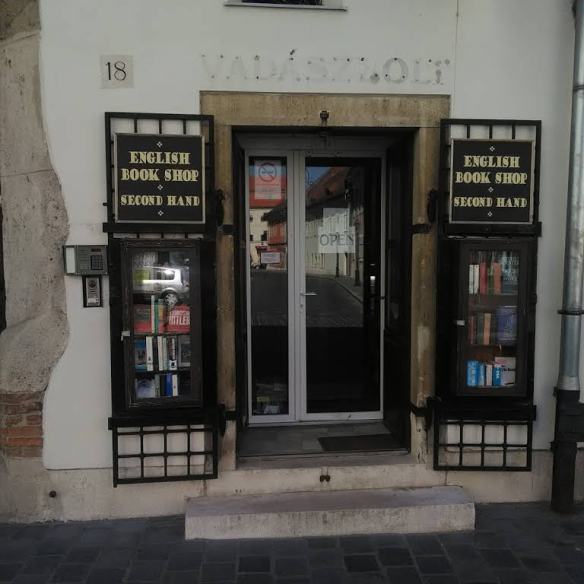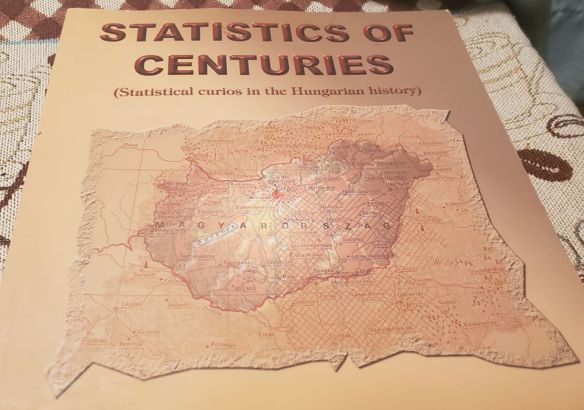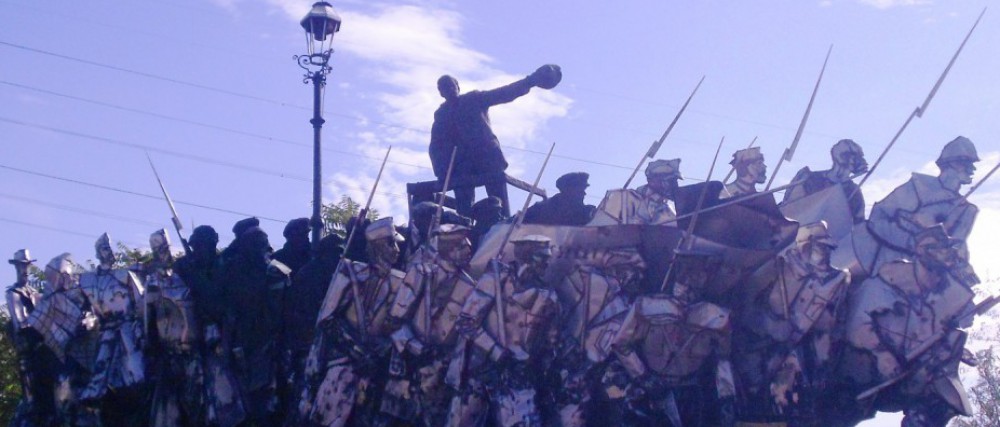My bi-annual Hungarian travel pilgrimage always involves a trip to my favorite English used bookstore in Buda. Amid all the atmospheric architecture and quaint, picture perfect Baroque townhouses found in the Castle District stands a small bookselling business located at Orszaghaz 18. Signs attached to gated shutters adorning either side of the entrance state: English Book Shop * Second Hand. Below these signs are books enclosed within glass cases. Above the entrance in fading letters the word Vadaszbolt is written. Literally translated from Hungarian the word means “Hunters store”. All traces of the Hunters store have disappeared except for the ghost sign. Taking its place is Dani’s English Bookshop, an eclectic establishment with an incredibly eccentric owner. I have met Dani, or at least the man I assume is Dani, on many different occasions. He sits in the back corner of his one room shop staring intently at a book. Every couple of minutes he turns the page. The only time he looks up from the book is to greet a customer with a single word, “Hello”. He makes very little eye contact after this initial interaction.

A Whole New World – Dani’s English Bookshop
A World Unto Himself – A Strange Sort Of Shopkeeper
Almost invariably, I am the only person in Dani’s English Bookstore. That certainly does not make Dani any more aware of my presence. He is a study in complete indifference. Dani’s attention is focused on one thing, finishing the page he is reading so he can turn to the next one. His attention is never fixed on the customer. This makes him a strange sort of shopkeeper, even by Hungarian standards of customer service. One thing I love to try with Dani is engaging him in conversation. My attempts are met with either an uncomfortable silence or a quizzical glance. For the longest time, I have wondered whether Dani might be hard of hearing. He does not seem to understand or care about anything I say to him. Dani might also be suffering from poor eyesight. While reading books, I noticed that he holds them very close to his face. So close, that he could turn the pages just by exhaling. Oddly, he never wears glasses.
Dani is the most intense reader I have seen. The look on his face is of a man totally engrossed in another universe. Nothing other than the book in his hand seems to matter. For Dani, words are to be read, not spoken. Besides the obligatory hello, his only other words are the amount due for a purchase. As soon as the sale concludes, Dani goes back to reading whatever book has captured his interest. Saying goodbye or good day or any parting words in Hungarian fails to elicit so much as a mutter. The term “character” and Dani are synonymous. The last few times I visited Dani’s bookstore was mainly so I could be ignored by him. He has become a Budapest institution in my mind, more so because Dani sticks out like a sore thumb amid the exalted streets, smart shops and overpriced tourist traps that inhabit so much of the Castle District. His prices are totally reasonable, he is not pretending to be anything other than what he is, an inveterate reader with little interest in anything other than books. In short, Dani is a world unto himself.

The Curiosity Shop – Statistics of Centuries
Hidden Gems – A Booklover’s Life
I have often wondered what motivates Dani. Obviously, it is not meeting people or customer service. Studying Dani’s dis-shelved clothing, intensely focused stare and lack of social skills, I figured running a bookstore must be a way for him to pursue his twin passions of reading hundreds of books each year and being left alone. The bibliophile life is a solitary, if somewhat enviable existence. It takes someone unique to open a store day after day for years on end, sell a smattering of books and read their days away. I just wish Dani’s knowledge was communicable. Since picking Dani’s brain about his favorite books is impossible, I spend my time perusing the stacks while trying to discern what topics interest him most. History takes up a good deal of space in this small store, thus that might be Dani’s favorite subject. As for my favorite, I go to Dani’s specifically looking for the proverbial needle in his Hungarian section’s bookstack. That is because Dani’s store brought me one of my favorite Hungarian books of all time, Statistics of Centuries (Statistical curios in the Hungarian history) by the Hungarian Central Statistical Office. The fact that I found this hidden gem has kept me coming back for more.
Statistics of Centuries is not the kind of book meant to be read straight through, from the first page to the last. Instead, it is the type of book that can be perused at one’s leisure. It is broken up into four sections: 1) The Millennium in Brief 2) Society in the 19th and 20th Centuries 3) Economy in the 19th and 20th Centuries and 4) Regions, Counties, Towns, Villages. Each section is chock full of statistical and historical nuggets on every aspect of Hungary. The only drawback is the date of publication, 2002, which makes the most current information (1990’s onward) a bit dated. It is enlightening to open the book to a random page and see what fact catches the eye. For example, on page 25 I find a chart showing the proportion of the Hungarian electorate that votes, only 56% did in 1998. This was disconcerting, coming less than a decade after the collapse of communism. So much for the love of democracy. On page 88, I learned that the top two causes of death in Hungary – Heart Disease and Malignant Tumors – did not change between 1948 and 2000. Of the top eight causes of death listed, the most notable entry was liver disease which came in at #5 in 2000. It did not appear on the 1948 list. Alcoholism represents a clear and consistent danger to Hungarians.

Pull Up A Chair – Orszaghaz Utca on Castle Hill in Buda
Random Fashion – Finding New Directions
One of the most fascinating charts in a book full of them, is the “Frequency of draws Five -Lotto Numbers” for the first six months of 2001 found on page 112. I had no idea such information was readily available. Of course, the numbers are supposedly generated in “random fashion.” I have never played lotto in Hungary, but I hope that if I ever do, I will draw a 64 (most drawn) over 63 (least drawn) out of the 90 potential numbers. This information may seem nonsensical to some, but it is the type of hard data that stimulates my mind. There are also narratives, recording the history and associated statistical curios from each of the 19 counties in Hungary. I feel like every time I open Statistics of Centuries a multitude of enlightening details come my way. I have Dani to thank for helping me find all these new directions. I just don’t think he would appreciate me telling him so. Such is the life and legacy of the lone bookseller. I expect to see him again soon and be met with indifference. Nothing will please me more.

One can pay with card.
Wonderful!